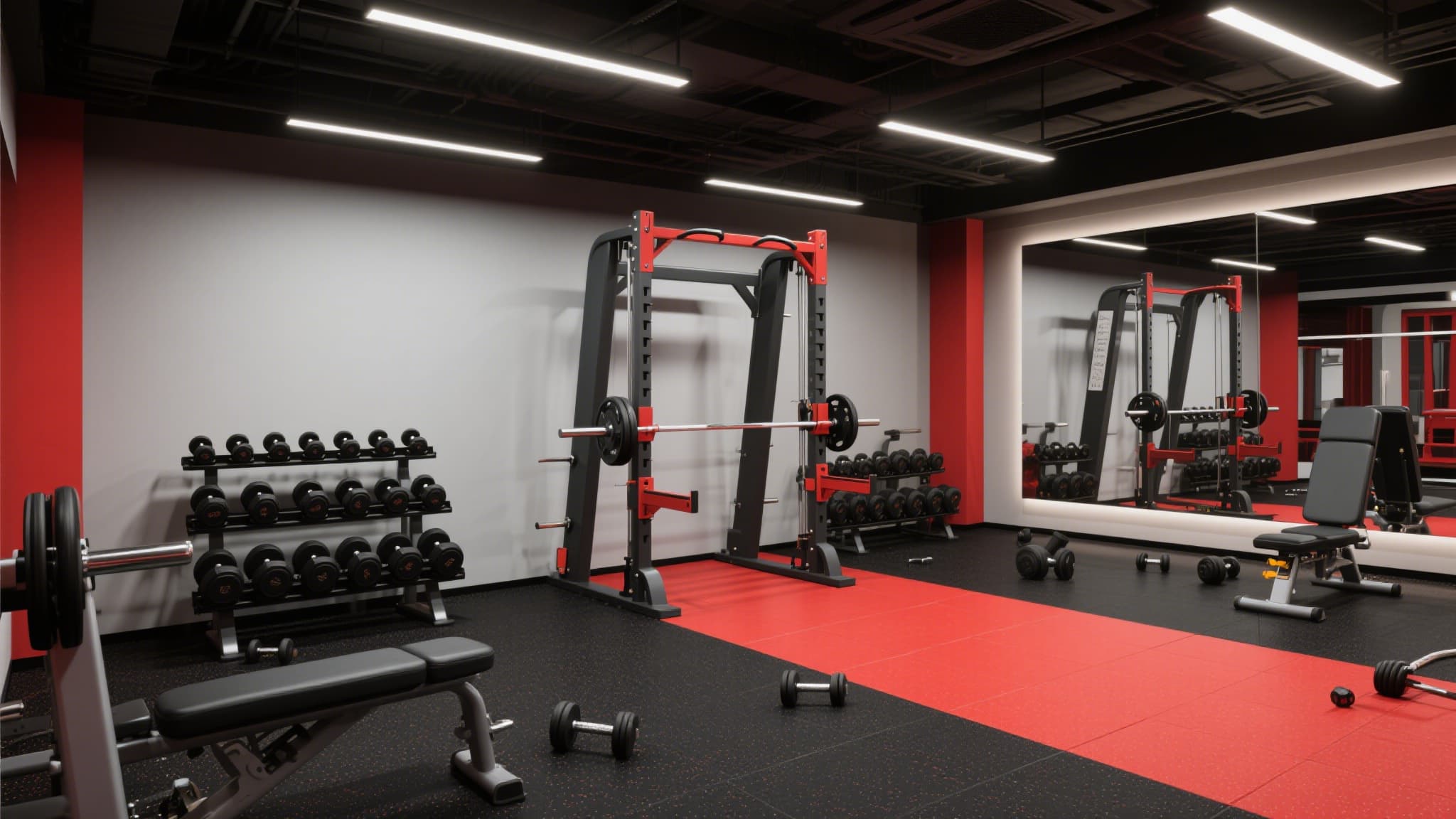
Key Benefits of Rubber Flooring in Commercial Settings
- Slip Resistance: Helps prevent accidents in high-traffic or wet areas.
- Noise Reduction: Absorbs sound in busy workspaces and gyms.
- Shock Absorption: Protects equipment and reduces fatigue from standing or walking.
- Low Maintenance: Easy to clean, resists stains and wear.
- Environmentally Friendly: Many rubber floors are made from recycled materials.
Industry Use Cases for Rubber Flooring
1. Fitness Centers and Gyms
Rubber flooring is essential for gyms due to its ability to absorb impact from heavy equipment and reduce injury risks. Recommended thickness: 10mm to 30mm, depending on weight usage.
2. Schools and Educational Facilities
In schools, rubber flooring is ideal for hallways, classrooms, and play areas. It offers safety for children and durability against high foot traffic. Choose smooth-surface, easy-to-clean options in 6mm to 10mm thickness.
3. Office Buildings
Offices benefit from the acoustic and ergonomic properties of rubber flooring. It reduces footfall noise and provides comfortable support for standing desks. Thinner options like 4mm to 6mm are typically sufficient.
4. Industrial and Manufacturing Facilities
In factories, anti-slip rubber flooring provides safety and fatigue resistance for workers. Choose textured surfaces with 8mm to 15mm thickness for durability and chemical resistance.
5. Retail Stores
Rubber flooring in retail environments offers comfort underfoot for staff and customers, along with excellent noise reduction. Go for modular tiles or rolls with attractive finishes and 6mm to 10mm thickness.
How to Choose the Right Rubber Flooring
- Identify Traffic Level: High-traffic areas need denser and thicker materials.
- Consider Safety Needs: Non-slip or anti-fatigue properties may be required.
- Evaluate Subfloor: Choose rubber flooring that matches your base layer type (concrete, wood, etc.).
- Design & Aesthetics: For visible areas like lobbies, select rubber flooring with color or texture options.
- Installation Type: Tiles for flexibility, rolls for large areas, or interlocking mats for DIY setups.
Conclusion
Rubber flooring is a smart investment for any commercial space, offering resilience, safety, and cost-effectiveness. By matching the flooring type and thickness to your industry’s needs, you can ensure long-term performance and satisfaction.
Need help finding the right rubber flooring for your commercial facility? Contact us today for expert advice and competitive pricing tailored to your business.
